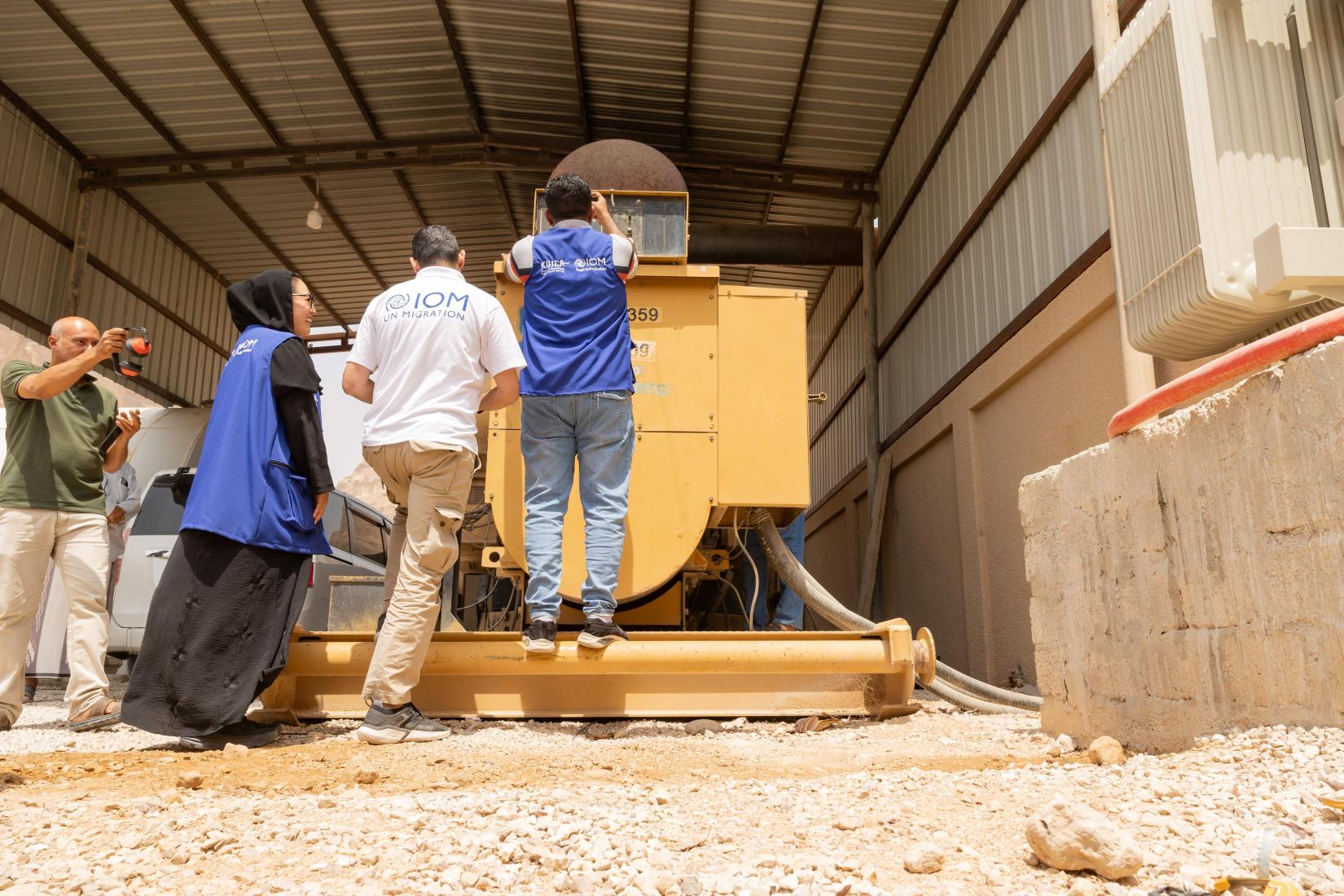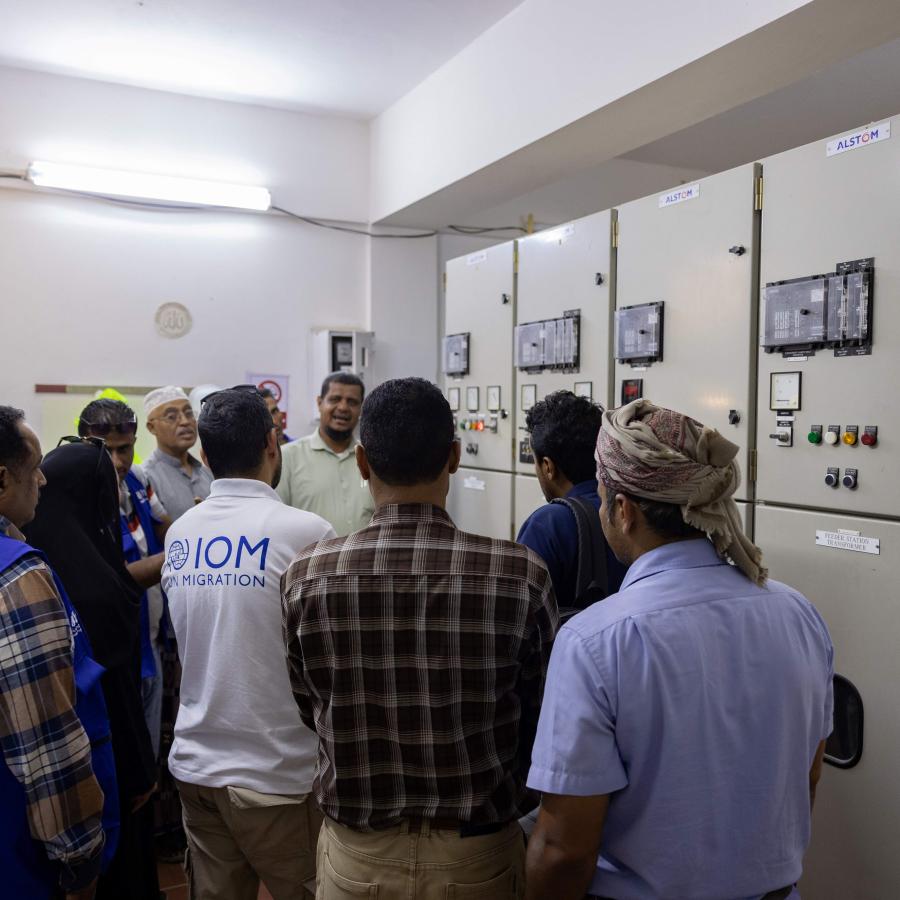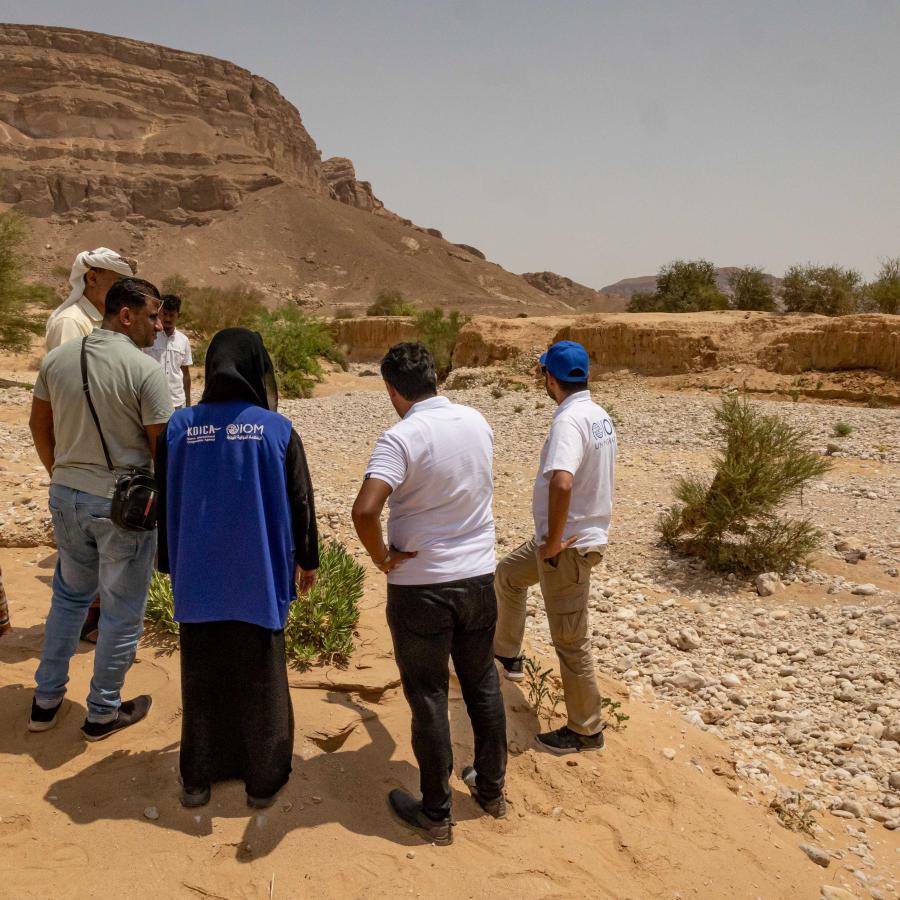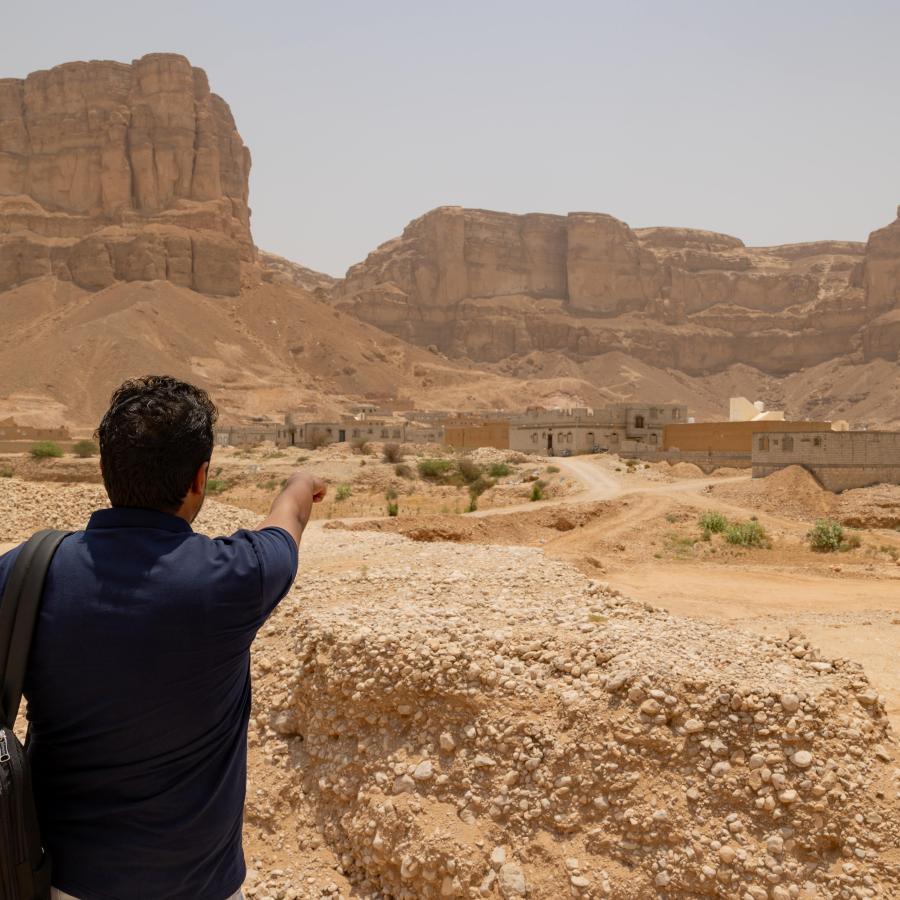IOM Yemen: Cultivating Peace - How Water Access is Healing Tarim
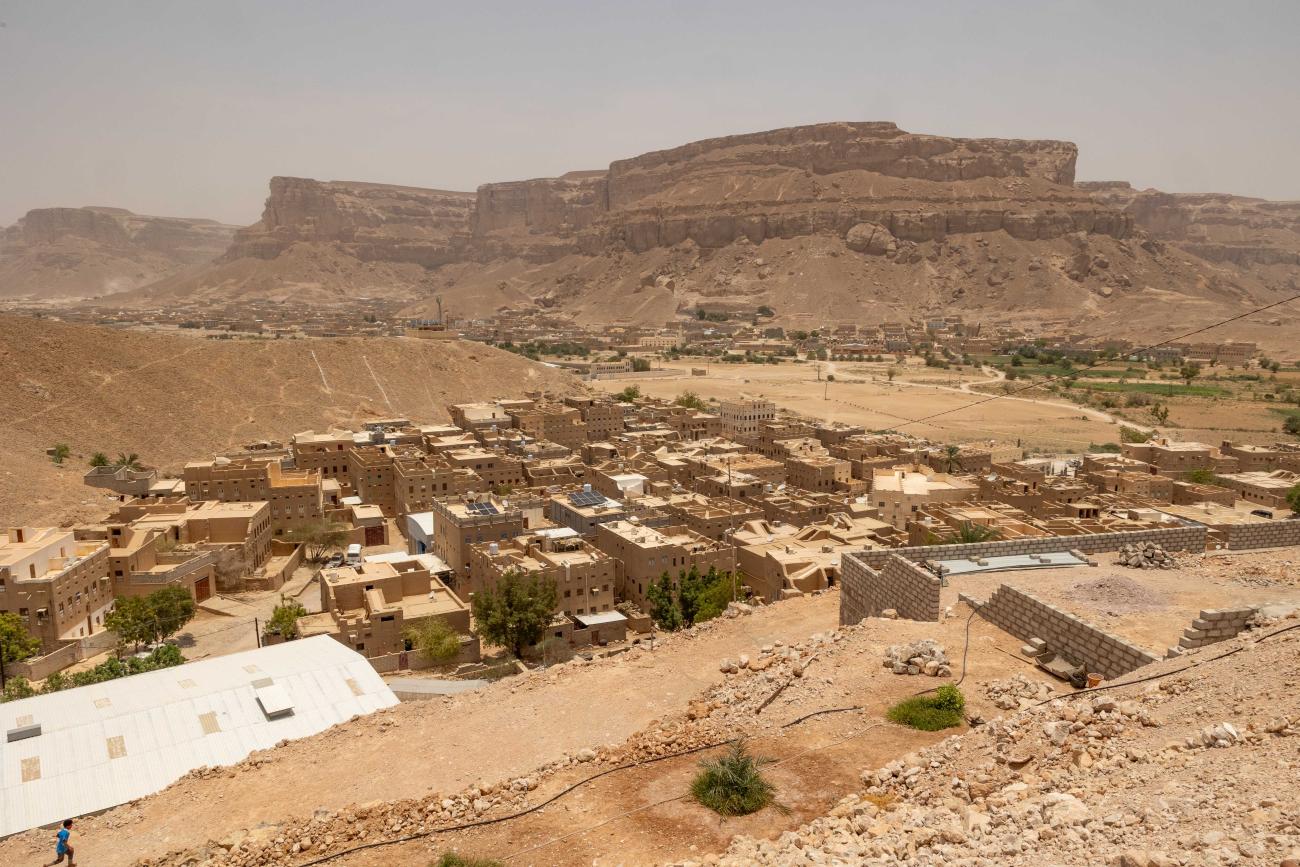
--
Tarim, Yemen
For many years, the people of Yemen have grappled with a pressing challenge: access to water. This issue has long been compounded by the devastation of war, where conflict has not only caused deep rifts in society but has also exacerbated water scarcity. These changes have severely damaged sanitation and water infrastructure, leaving 15.3 million people in need of clean water and basic sanitation.
As Yemen’s climate continues to shift, the consequences become more dire, with severe droughts giving way to sudden floods, creating an unpredictable landscape that threatens both livelihoods and community stability. This relentless cycle of extreme weather events not only hampers agricultural production but also exacerbates tensions among communities competing for dwindling resources.
In the heart of Tarim, a city known for its rich agricultural history, farmers like Riyadh have felt the weight of this crisis acutely. “For over a decade, we relied on the stars to guide our farming,” he explains. “Now, floods arrive without warning, destroying our crops and hopes.”
Farming Under Pressure
Riyadh attempts to maintain his land’s productivity with the aid of an electric shovel, an expensive solution for a struggling farmer. “It costs me a lot for an hour, which is a huge burden when every little bit counts,” he shares, illustrating the financial strain that accompanies the drought.
In the suburbs of Tarim, farmers have increasingly turned to drilling joint wells, a temporary fix that often leads to unsustainable outcomes as these wells too begin to run dry. “It’s heartbreaking to watch our fields fail, either from drought or flooding,” Riyadh says.
The distribution of water has always favoured those closer to resources, leaving distant farmers like Riyadh to face harsh shortages. As tensions rose within the community, conflicts over water allocation became a frequent reality, with some areas experiencing a complete lack of access for over 13 years.
“Without water, our lands turn to dust.”
– Riyadh, Community Member
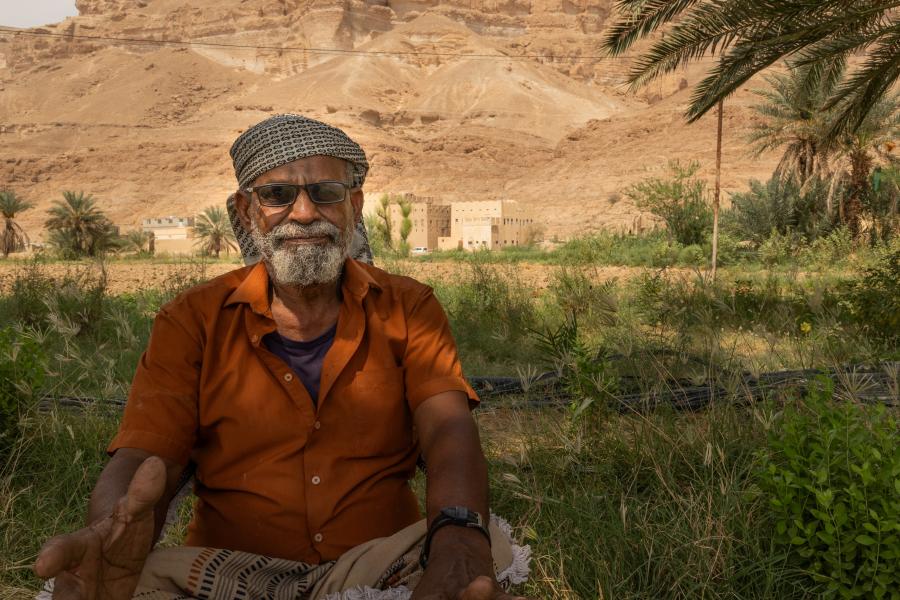
Community-Led Initiatives
For over a decade, this inequitable distribution has not only led to profound social changes within the community but has also escalated tensions among residents. As access to essential resources like water dwindled, conflicts over water allocation became increasingly common.
This scarcity has significant implications for agricultural productivity, further threatening the livelihoods of those who depend on the land. “When we had no access to water for agriculture, our lands dried up,” explains Riyadh.
Recognizing the urgent need for intervention, the International Organization for Migration (IOM), in collaboration with local authorities, launched a comprehensive project in 2023 to address water-related tensions. They conducted assessments to engage the community in understanding their needs and the conflicts arising from water scarcity, fostering cooperation among community members and empowering local leaders.
Regular consultation sessions have led to the formation of community committees, where residents come together to oversee water resources and promote efficient use. This initiative places a strong emphasis on the role of women and youth in fostering peace and addressing resource conflicts.
“Women have always been at the heart of our communities, and their contributions to conflict resolution are invaluable.”
– Mohammed Salmeen, Local Leader
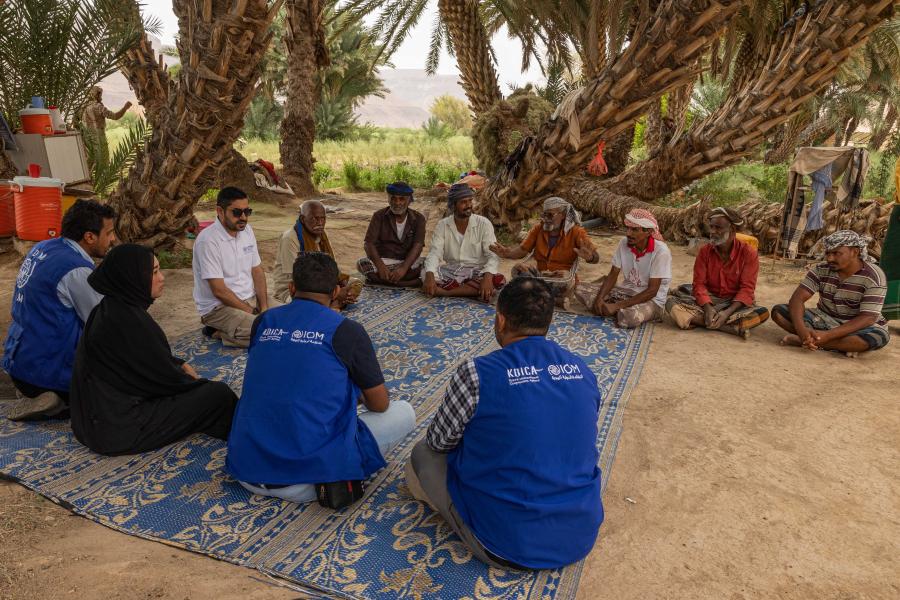
Reclaiming Water Resources
In addition to conflict resolution, the project includes vital infrastructure rehabilitation. New irrigation systems, terraces, solar-powered water pumps, and gabion walls – structures designed to manage water flow – are being constructed to restore access to water. “The changes we’re witnessing are monumental,” Riyadh says. “With a reliable water supply, we can cultivate our crops without fear.”
The successful implementation of these solutions through cash-for-work activities not only revitalizes agriculture but also inspires community members to engage in income-generating opportunities. The project aims to benefit nearly 211,000 residents in Tarim, providing sustainable water access and breathing new life into the parched lands.
Through collective effort, this once-fragile community is learning to navigate the challenges of water scarcity and climate change, united in their resilience and determination to thrive. “Now, we can focus on growing our crops and nurturing our families,” explains Riyadh. “Water is life and we are reclaiming it.”
#InternationalDayofPeace
